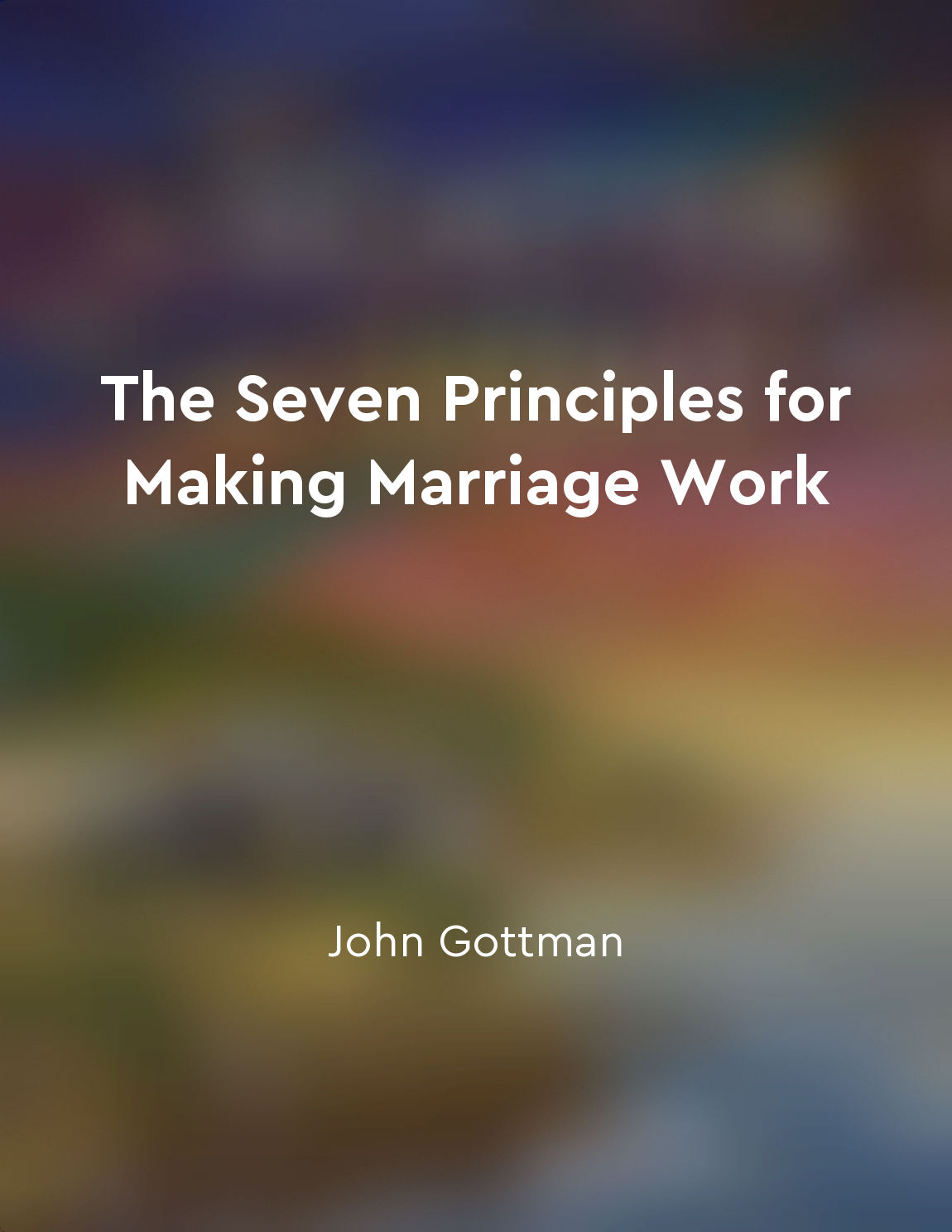Learn to deescalate conflicts from "summary" of The Seven Principles for Making Marriage Work by John Gottman
Conflicts are inevitable in any relationship, including marriages. When disagreements arise, it is crucial to handle them in a way that does not escalate the situation further. Learning to deescalate conflicts involves recognizing the signs of escalating tension and taking steps to diffuse it before it spirals out of control. One way to deescalate conflicts is to practice self-soothing techniques. This involves calming yourself down when you feel your emotions getting the better of you. By taking a step back and focusing on your breathing or using other relaxation techniques, you can prevent yourself from saying or doing things that may escalate the conflict. Another important aspect of deescalating conflicts is to validate your partner's feelings. This means acknowledging their emotions and showing empathy towards their perspective, even if you do not necessarily agree with it. By validating your partner's feelings, you can help them feel heard and understood, which can go a long way in diffusing the conflict. Communication is key when it comes to deescalating conflicts. It is important to use non-defensive language and avoid blaming or criticizing your partner. Instead, focus on expressing your feelings and needs in a calm and respectful manner. By communicating effectively, you can prevent misunderstandings and reduce the likelihood of the conflict escalating. It is also important to take breaks when conflicts become too heated. Sometimes, it is best to step away from the situation and give yourselves time to cool off before addressing the issue again. This can prevent the conflict from escalating further and allow both partners to approach the situation with a clearer mind.- Learning to deescalate conflicts is essential for maintaining a healthy and happy marriage. By recognizing the signs of escalating tension, practicing self-soothing techniques, validating your partner's feelings, communicating effectively, and taking breaks when needed, you can prevent conflicts from turning into destructive arguments.
Similar Posts

Listen to your child's feelings and validate them
When we take the time to truly listen to our children, we are showing them that their feelings are important and valid. By tuni...
Being mindful of body language enhances understanding
When we engage in conversation, we rely not only on the words spoken but also on the non-verbal cues communicated through body ...
Empowering employees improves communication within organizations
When employees feel empowered within an organization, they are more likely to communicate effectively with their peers, supervi...
Set realistic expectations for communication
When we set unrealistic expectations for communication, we set ourselves up for disappointment. We may believe that others shou...
Partners in marriage should be able to share their dreams
In a happy marriage, partners are able to share their dreams with each other. This means that they openly communicate their hop...
Compassion towards ourselves is essential
Compassion towards ourselves is essential. It is the foundation upon which we can build a healthy relationship with ourselves. ...

Supporting her goals and aspirations
Supporting her goals and aspirations is a crucial aspect of any successful relationship. It involves being there for her, cheer...
Embrace diversity and inclusivity
Diversity and inclusivity are foundational principles that should guide all aspects of youth ministry. These concepts go beyond...
Emotional intelligence plays a crucial role in people skills
Emotional intelligence is a critical component of effective people skills. Understanding and managing one's emotions, as well a...
Scouts learning valuable life skills
Scouts in "Boys' Life" are exposed to a wide range of activities that not only help them earn badges but also teach them valuab...


